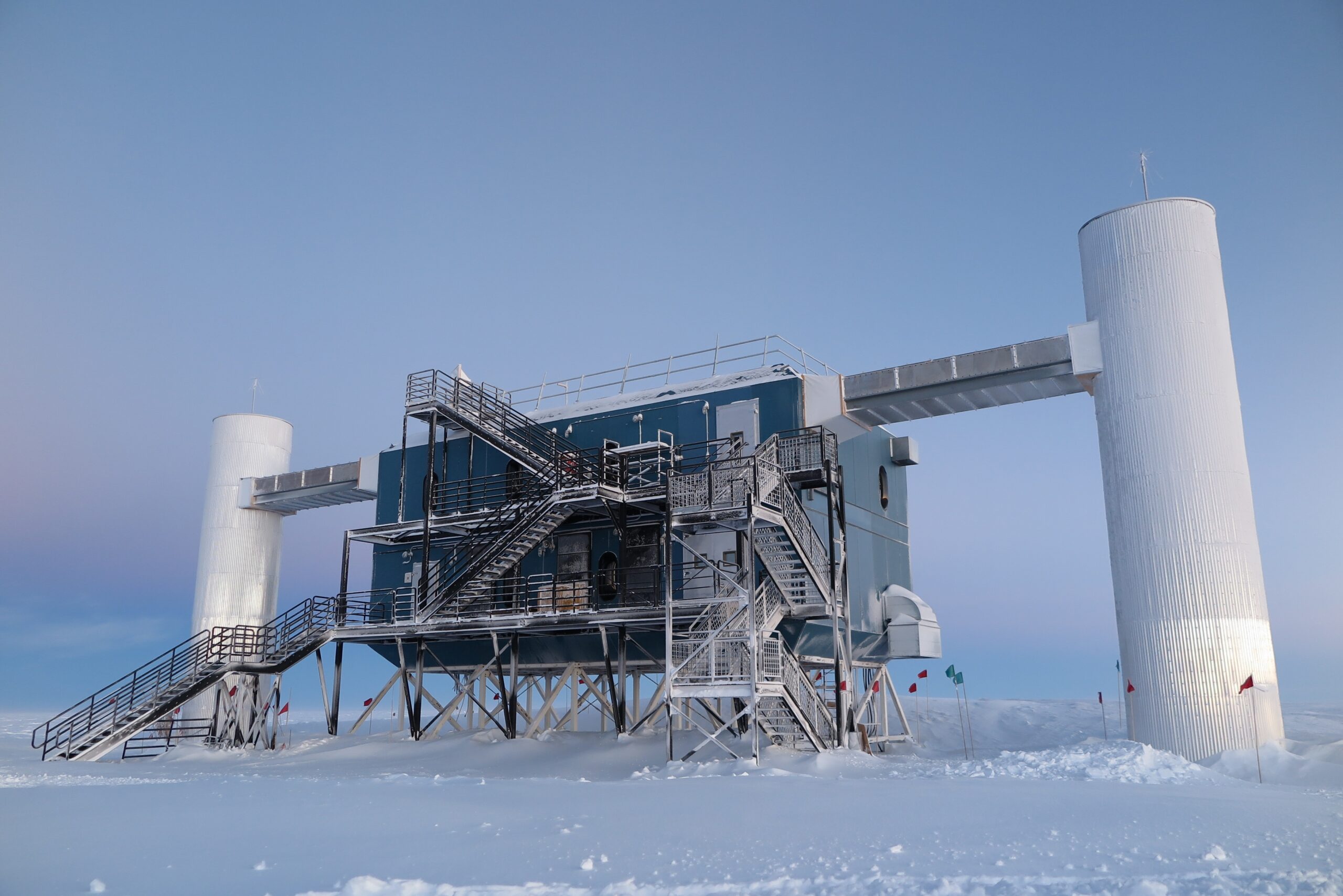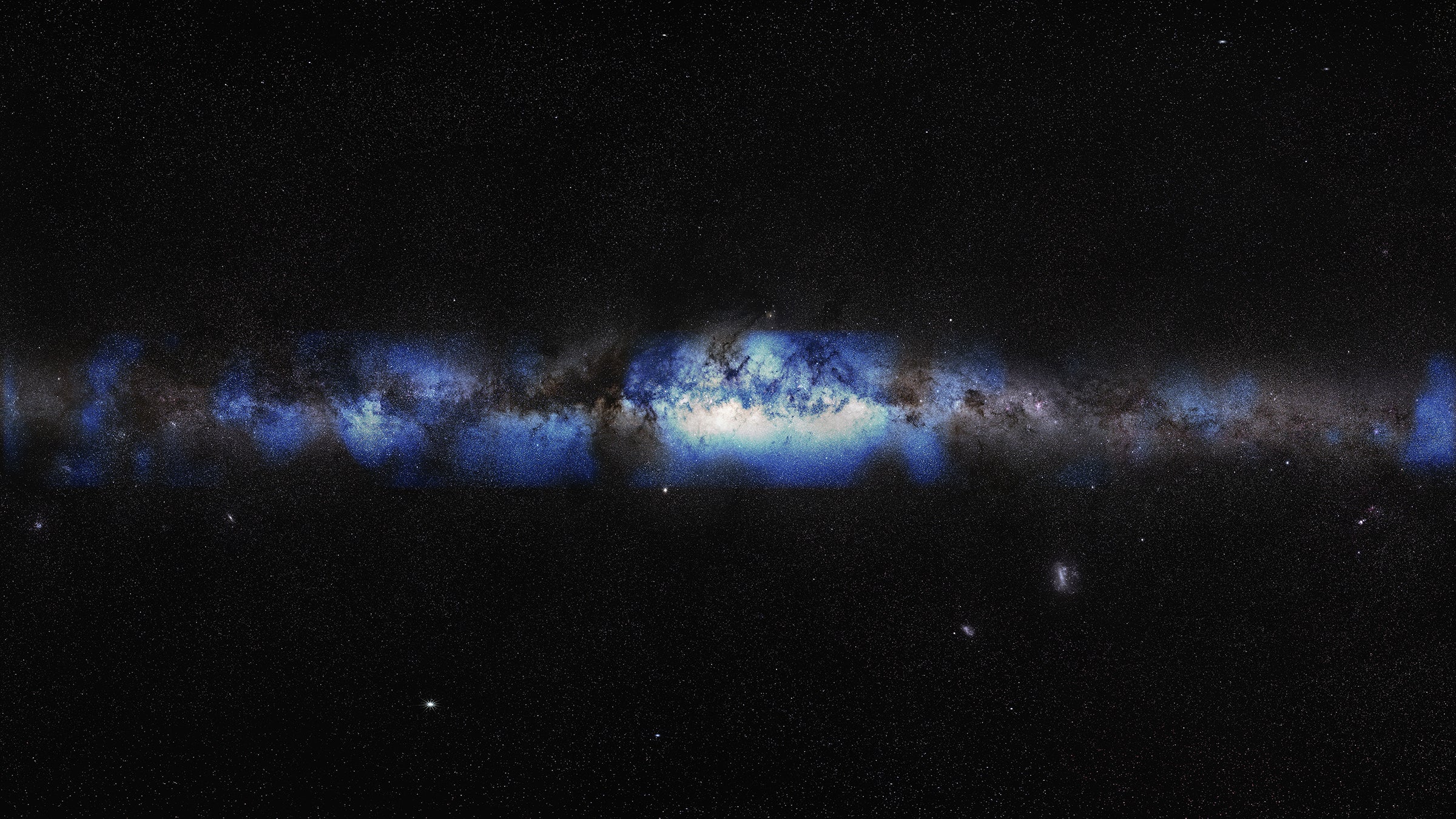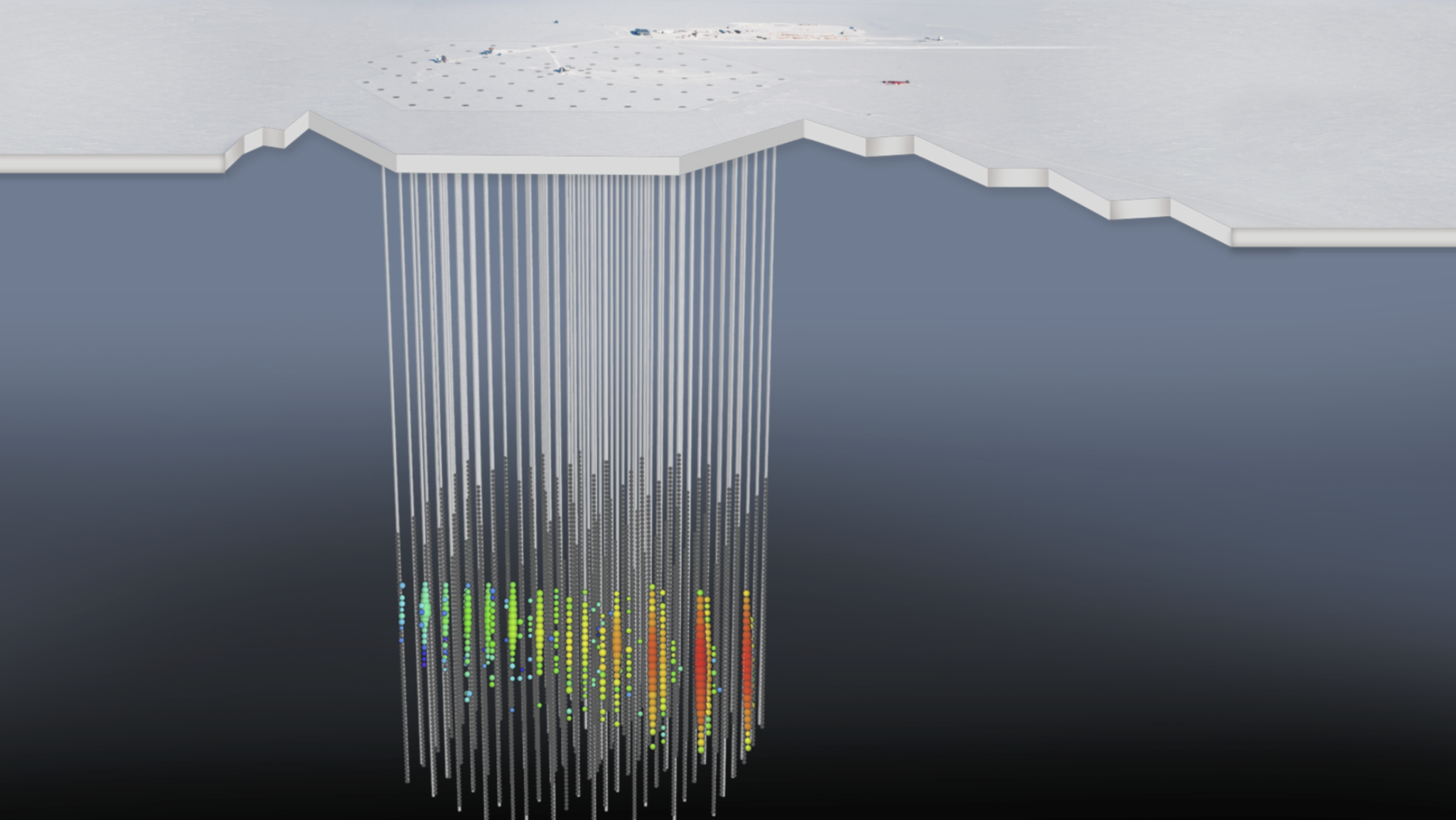A University of Wisconsin-Madison scientist says much work is ahead for the UW’s neutrino project at the South Pole now that it’s won a $35 million grant to continue detecting high-energy cosmic particles.
The National Science Foundation announced the five-year funding commitment Wednesday.
The 15 year-old project, dubbed IceCube, is located at NSF’s Amundsen-Scott South Pole Station. The UW has been operating and managing a detector that uses optical sensors in the ice a mile beneath the pole.
Stay informed on the latest news
Sign up for WPR’s email newsletter.
UW physics professor Francis Halzen is the principal investigator for the project. He said in 2013, IceCube discovered neutrinos reaching Earth from beyond our solar system — so-called “cosmic neutrinos” — and has begun mapping them.
According to the NSF, neutrinos are nearly massless particles that are created by nuclear reactions far off in the universe. Scientists believe colliding black holes, supernovas and pulsars accelerate neutrinos, billions of which pass through the Earth every second.
Halzen said that researchers have been aware “that nature produces particles that have enormous energy compared to the accelerator beams we can build on Earth,” but that more needs to be known about how the cosmic accelerators work.
“In order to do the science , you need many more detection events than we have now,” said Halzen. “Our sky map doesn’t have enough resolution. We have an order of 100 events, by now, depending on how you count. But really, we’d like to have 1,000 events or more.”
Halzen said the new funding will allow the detector to operate for a longer time, and for scientists to design a “next generation” instrument that will allow faster collection of the neutrino events.
Halzen noted that the neutrinos are harmless to humans.
Wisconsin Public Radio, © Copyright 2024, Board of Regents of the University of Wisconsin System and Wisconsin Educational Communications Board.




